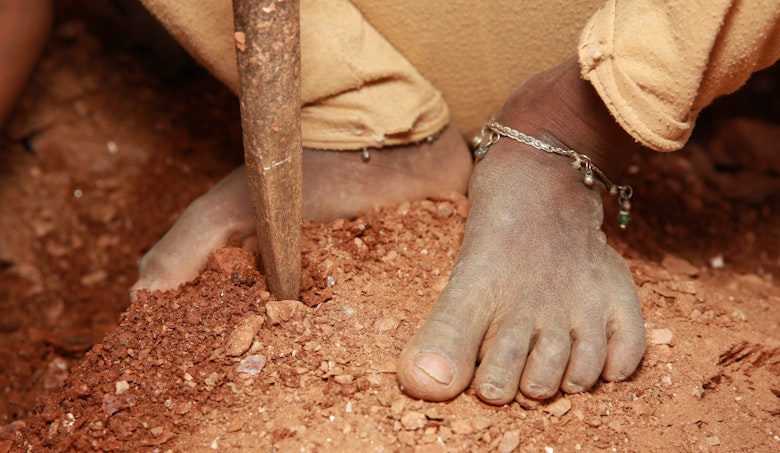Building back better after COVID-19 – children demand flexible education, fair wages for their parents and participation
For millions of children, COVID-19 meant hunger, poverty and the end of educational opportunities. The global impact of the pandemic on children and their families is being felt in many areas of life. This is confirmed in a new Child Labour Report 2022 by Terre des Hommes International Federation, ahead of the World Conference on the Elimination of Child Labour which begins on Sunday. The report examines how the living conditions of children have changed as a result of COVID-19 and what measures are necessary for a just and social recovery from those affected.
Children in Peru are behind in education
Case studies conducted by Terre des Hommes in India and Peru show that many children have started to work as a result of the pandemic to ensure the survival of their families, and for the first time in 20 years, child labour is on the rise globally.
Among Peruvian children who went to school before the pandemic and worked as street vendors, they worry about the future, as their parents have lost jobs and lack future opportunities. Moreover, children have missed a lot of education in the past two years due to inadequate technical equipment and have had no choice but to increase their work on the streets.
In India, girls and boys report that they have to compensate for their parent's loss of income by digging the mica mineral in mines under most dangerous working conditions, which is used, for example, in the cosmetics and electronics industries due to its pearl shimmer and good conductivity. Often they have to descend into unsecured shafts up to 20 meters deep and risk their lives when mining. In both countries, inadequate food supply is caused by COVID-19, and in India, the risk of early marriage is also increasing for girls, as countless families cannot ensure their care.
Youth call for more flexible education
In workshops, the affected children and adults, together with teachers and government representatives, have now developed recommendations for a sustainable and equitable recovery of good living conditions after the pandemic. They demand flexible education opportunities and digital equipment so that they can be educated at home early in the morning before or in the afternoon or evening after work.
Peruvian school personnel and government officials, for instance, envisioned an education system that provides the necessary technological resources to ensure children’s access to learning even during future crises. Furthermore, they wish for an education that takes into consideration the soft skills needed for children to thrive.
In India, children and adults envisioned Government provision of scholarships, uniform, stationery and bicycles to girls and boys from vulnerable households, as well as free transport for students who travel to a school outside of their village. For higher education, a teacher in India also proposed options of interest-free loans and strengthening virtual access to education, particularly in remote areas. In addition, children and their families demand decent working conditions for adults. Fair wages are needed to afford the basic care of the family, including the children's education.
"The report shows how much children are suffering from the consequences of the pandemic," said Beat Wehrle, representative of the International Board of Terre des Hommes. "The well-being of children is massively threatened by the consequences of the pandemic. We see an alarming increase in exploitative child labour in our project regions. At the World Conference on Sunday, the international community must adopt measures that enable the poorest to live with the consequences of COVID-19 and regain access to economic and social supply. This includes, above all, protection against violence and access to education that enables children to receive an education and not be exploited as day labourers."

